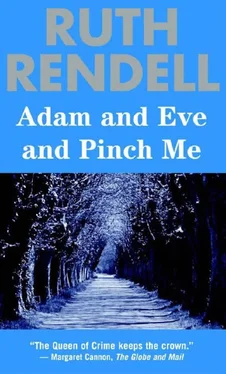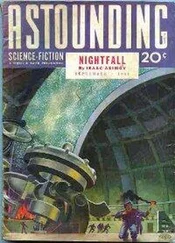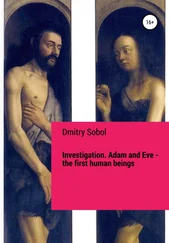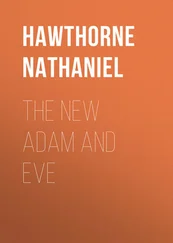The chairman of the local branch introduced him and congratulated him on his recent marriage. The audience cheered. Jims addressed them as “Ladies and Gentlemen, friends, Englishmen and Englishwomen, you who uphold our Dorset way of life, you the backbone of our land, this land of such dear souls, this earth, this realm, this England.”
They clapped and cheered. He told them at length what they already knew; what a glorious sport hunting with hounds was, how it had been part of English rural life since time immemorial, that it was a hallowed tradition which preserved the countryside and sustained thousands in employment. Though in fact he rather disliked riding, he went on to say what a pleasure it was for him, toiling all week in the murk and bustle of London, to go out with the South Wessex on a fine Saturday morning. The fresh air, the wonderful countryside, the sight and sound, surely the finest of all rural experiences, of the hounds on the scent. Foxes, he said, suffered very little in the chase. Lamping by night and shooting by the unskilled with a gun was far more cruel. In fact, he corrected himself, hunting wasn’t cruel at all, considering that only six percent of hunted animals were actually killed. The real pain would be suffered by those employed in various ways by the hunt-he quoted the alarming statistics in the notes he’d gone back to London to find-and who stood to lose their livelihoods if this pernicious bill became law.
He continued in this vein, though he was preaching to the converted and had no doubters to persuade. Just before he came to the end he recalled that he hadn’t responded to the chairman’s congratulations on his nuptials, so he finished by thanking him and saying how much he looked forward to setting his two charming stepchildren on horseback and introducing them to the joy of the chase.
The tremendous applause went on for nearly two minutes, with foot-stamping and shouts of approval. People queued up to shake his hand. A woman said she’d nearly not voted for him at the general election but now she thanked God nightly in her prayers that she had. The local branch of the alliance took Jims out to dinner in a horrible little restaurant called the Warming Pan, but he managed to escape at ten and drove himself home to Fredington Crucis House, fearful all the way that due to the amount of a rather disgusting Armenian red he’d drunk he might be over the limit.
Zillah had spent the sort of afternoon that wasn’t at all to her taste, first taking the children to a playground on the south side of Westminster Bridge, then walking them along the South Bank past the London Eye and the National Theatre and the bookstalls, as far as Tate Modern and Shakespeare’s Globe. It was sunny and warm, and it seemed to her as if everyone in London was down there on the traffic-free embankment. Strange, then, that this walk reminded her of life in Long Fredington. The loneliness of it, perhaps, with no one else to talk to but two people under eight, no man in her life, not even Jerry. She hadn’t brought his pushchair, so after a while she had to carry Jordan. She bought ice cream and Jordan’s dripped down onto her Anne Demeulemeister jacket. “Sometimes I think I’ll still be carrying you when you’re eighteen.”
Her cross tone set him off sniveling. Neither child had made any comment on the policeman’s visit, for which Zillah supposed she should be thankful. She was praying she’d heard the last of him and of Jerry. Perhaps, on the next visit he’d threatened, he’d only want to talk to Jims. Bigamy , she thought, when she was home again getting the children’s tea, bigamy . Why had that policeman asked her for the date of her divorce? But even though Jerry had been alive when she married Jims, she reminded herself, he was dead now. He’d died within two months of the wedding. Hold on to that, she said to herself, hold on to that, you haven’t got two husbands, you had two for only a few weeks. You can’t be a bigamist when you’ve only one husband.
At nine-thirty that night the police phoned. They wanted her to identify the dead man and would send a car to fetch her. Tomorrow morning at nine? Too frightened to protest, she phoned Mrs. Peacock. Could she come in the morning and look after the children while she went out?
“On a Sunday?” said Mrs. Peacock in an icy tone.
“It’s business. Very important business.” Zillah didn’t want to tell her she was off to identify a corpse in a mortuary. “I’ll pay you double.”
“Yes, I’m afraid you’ll have to.”
Eugenie, who had come out from her bedroom in her nightdress and overheard this, said in nearly as cold a voice, “Don’t you ever want to stay at home and look after us?”
The police officer was a woman, plain-clothed. She looked about Zillah’s own age and rather like one of those women detectives in TV dramas, tall, thin, with long blond hair and a classical profile, but her voice was an unpleasant near-cockney, high-pitched and brisk. She sat in the back of the car with Zillah, who had dressed herself soberly for this solemn occasion in a black suit and white blouse. On the way to the mortuary there was no conversation between them.
Zillah had never seen a dead body before. Feeling queasy, she saw that Jerry looked more like a waxwork of himself than a real person no longer alive.
“Is that your former husband, Jeffrey Leach?”
“Yes, that’s Jerry.”
The woman, who was a detective inspector, asked Zillah, in her strident, uncompromising tone as they left the mortuary and walked across a yard to the police station, why she called the dead man that.
“He was usually known as Jerry. Some people called him Jeff and his mother called him Jock. On account of his second name being John, you know.”
The detective inspector looked as if she didn’t know. She took Zillah into an office, functionally furnished, and asked her to sit down on the opposite side of the desk from her own. Her dislike was palpable, seeming to beam out of her in waves. “Did you write this, Mrs. Melcombe-Smith?”
She passed across the desk a sheet of paper with writing on it. If Zillah hadn’t been sitting down, she thought she’d have fainted. It was the letter she’d written to Jerry begging him not to reappear and, above all, not to brand her a bigamist. Her head was swimming too much for her to read it. Had she used the word “bigamist”? Had she? She couldn’t remember. She closed her eyes, opened them again, and made the sort of effort of will she was seldom called upon to attempt. A deep breath, and she managed to read the letter. Dear Jerry , she had written,
I am writing to you to beg you not to come back, to really go away and disappear out of my life. You did write that letter telling me you were dead, and though I didn’t believe that, I thought you meant me to act as if you were. Please do that. Please. I thought you were not fond of the children because you did not want to see them for months and months. If you want to see them sometimes we could arrange that. I could bring them somewhere to you. Jerry, I will do anything if you will only not try to see me or come here and please, please, don’t use that word about me. It frightens me, it really does. You must believe I don’t wish you any harm but rather the reverse. I just want to get on with my life, so please, if you have any pity for me, stay away .
Yours, Z
“Did you write it?” the detective inspector repeated.
“I may have.”
“Well, Mrs. Melcombe-Smith, there aren’t many women with first names that begin with Z, are there? A few Zoes maybe. I can’t say I’ve ever met a Zuleika but I believe there are some about.”
“Bigamist” wasn’t in the letter and nor was “bigamy.” It didn’t exactly reveal anything, it was quite discreet. “I wrote it,” Zillah said.
Читать дальше











